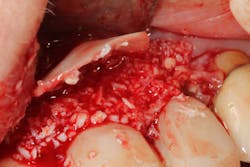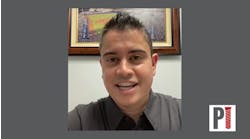Saving your sanity while saving teeth: 3 ways to make dental insurance approval easier for periodontal therapy
With the advent of new technology, teeth that previously were considered hopeless can now be saved. However, sometimes an obstacle arises and it's not the patient or the disease—it's the insurance company. Kyle L. Summerford shares three time-tested ways he uses to ease the insurance approval process for periodontal regeneration therapy.
PATIENTS WHO PRESENT with moderate periodontal disease often require intervention in the form of surgery and grafts in order to try to save their teeth. Grafting in the form of bone and soft-tissue grafts can be extremely important to rebuild the architecture around damaged teeth. Especially important is the concept of bone regeneration when bone defects around teeth allow for proper cellular growth. Unfortunately, it is often the insurance company—not the patient or the disease process—that acts as the obstacle to a successful outcome.
With the advent of new technology, teeth that previously were considered hopeless and had to be extracted can now be saved. Although in financial calculations made by insurance companies it is easier to remove teeth, this treatment is not in the best interests of the patient in terms of long-term function and care.
The challenge in getting insurance companies to agree to cover periodontal therapy often becomes both the problem of the front dental office and the patient. Through trial and tribulation, the following advice covers the top three ways to facilitate insurance approval for periodontal regeneration therapy.
Top 3 ways to facilitate dental insurance approval for periodontal regeneration therapy
✔️ Submit recent (six months) periodontal charting and x-rays (enlarged periapicals). Be sure to indicate pocket depths, loss of attachment, and bleeding on probing.
✔️ Provide a detailed narrative with the patient's claim form. When writing the narrative, be sure to explain how the patient can benefit from saving his or her teeth by undergoing treatments helpful in avoiding future medical conditions that would be detrimental to the patient's overall health.
✔️ Report the desired prognosis. Be sure to mention other successful outcomes of similar cases.
Kyle L. Summerford is a nationally recognized practice management guru, author, and lecturer. As founder and president of Summerford Solutions Inc., he provides powerful information for dental staff members on his website, ddsguru.com. Kyle also serves as editorial director of PennWell’s Dental Office Manager Digest e-newsletter. He lectures extensively to dentists and their staff on topics such as insurance coding and billing, and useful practice management tips.









